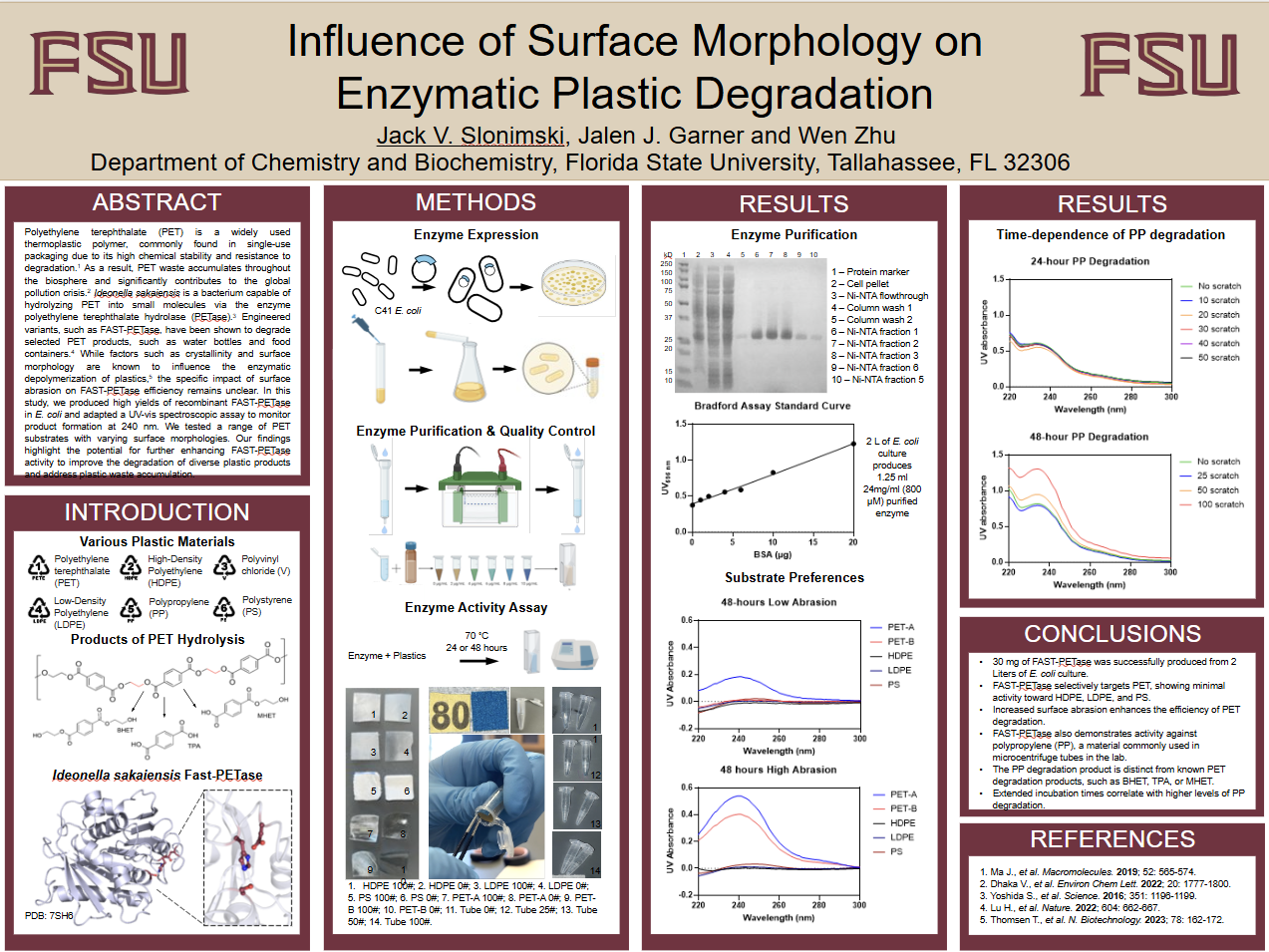Research Symposium
25th annual Undergraduate Research Symposium, April 1, 2025
Jack Slonimski Poster Session 4: 3:00 pm - 4:00 pm / Poster #248
BIO
My name is Jack Slonimski. My research interests are in enzymology. I am from West Palm Beach, Florida. I plan on continuing my education after undergraduate.
Influence of Surface Morphology on Enzymatic Plastic Degradation
Authors: Jack Slonimski, Wen ZhuStudent Major: Biochemistry
Mentor: Wen Zhu
Mentor's Department: Chemistry and Biochemistry Mentor's College: Arts and Science Co-Presenters:
Abstract
Polyethylene terephthalate (PET) is a widely used thermoplastic polymer, commonly found in single-use packaging due to its high chemical stability and resistance to degradation.1 As a result, PET waste accumulates throughout the biosphere and significantly contributes to the global pollution crisis.2 Ideonella sakaiensis is a bacterium capable of hydrolyzing PET into small molecules via the enzyme polyethylene terephthalate hydrolase (PETase).3 Engineered variants, such as FAST-PETase, have been shown to degrade selected PET products, such as water bottles and food containers.4 While factors such as crystallinity and surface morphology are known to influence the enzymatic depolymerization of plastics,5 the specific impact of surface abrasion on FAST-PETase efficiency remains unclear. In this study, we produced high yields of recombinant FAST-PETase in E. coli and adapted a UV-vis spectroscopic assay to monitor product formation at 240 nm. We tested a range of PET substrates with varying surface morphologies. Our findings highlight the potential for further enhancing FAST-PETase activity to improve the degradation of diverse plastic products and address plastic waste accumulation.
Keywords: Biochemistry, enzymes, plastic, environment, biodegradation


